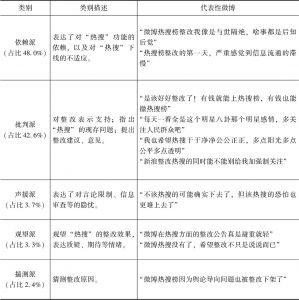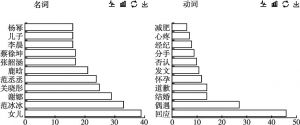论文
算法化公共领域:基于新浪微博“热搜榜”的分析与反思
摘要
大数据时代,算法越来越发挥起公共领域“载体”的角色,进行问题的识别、提炼和传输。本文采用批判算法研究的视角,以新浪微博“热搜榜”为例,讨论算法化公共领域的相关问题。具体而言,本文试图探究算法驱动下的“热搜榜”所具有的话题偏好属性,以及“微博实际采用的算法”和“用户想要的算法”之间的张力。通过对1863条“爬取”微博的内容分析,本文发现,“热搜榜”发挥着重要的议程设置功能,网民对其批评主要集中在金钱干预、人民的声音被边缘化、上榜规则缺乏透明性和公平性。整改后的“热搜榜”仍偏好娱乐八卦类话题,平台媒体需要将更多元的价值观念引入信息推荐系统,并寻求编辑分发和算法分发的融合路径。
作者
检索正文关键字
论文目录
- 一 研究缘起:从算法引发的争议谈起
-
二 文献综述与理论框架
- (一)批判算法研究
- (二)算法化公共领域
-
三 研究设计
- (一)研究对象
- (二)研究方法
- 1.对网民评论的内容分析
- 2.对“最热搜”的内容分析
-
四 研究结果
- (一)对网民评论的内容分析结果
- (二)“热搜榜”偏好娱乐八卦类话题
- 五 讨论与结论
相关文献
查看更多>>>





